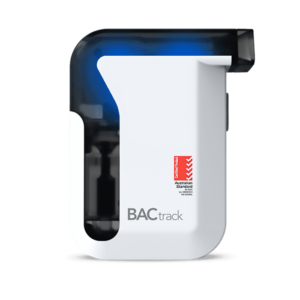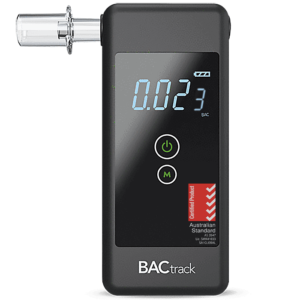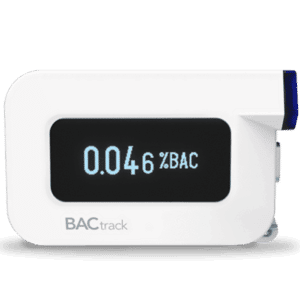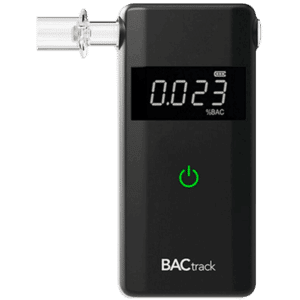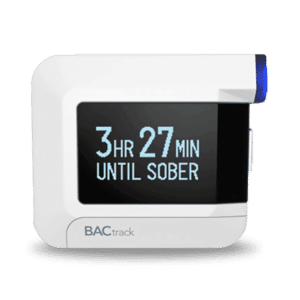Reasonable Suspicion Alcohol Testing: Overview
02 February, 2024

Reasonable suspicion alcohol testing is a preventive measure used in various settings to confirm the alcohol use of an individual. The test is often conducted in roadside and workplace settings if a person shows signs of intoxication. It is a crucial aspect in many workplaces to ensure safety and legal compliance. The test may involve different methods to detect alcohol, such as urine, oral fluid, and breath testing. Through early detection, companies can prevent accidents and other alcohol-related risks.
Excessive alcohol use can have several detrimental effects. It can lead to impaired judgment, coordination, and cognitive functions. These impairments are safety risks in industries that involve the operation of heavy equipment. To ensure a safe workplace, many companies implement an alcohol testing policy. In the next sections, we will explore the key aspects of reasonable suspicion testing, including its importance and workplace policies.
What is Reasonable Suspicion Alcohol Testing?
Reasonable suspicion alcohol testing is a process to detect alcohol in the system. It is often used by organisations to determine if an employee is under the influence of alcohol while on the job. The need for this kind of test is triggered by observable signs of alcohol impairment. It is important for employers to follow the protocols when conducting this test.
One of the key aspects of reasonable suspicion testing is to have proper documentation of unusual behaviours or actions. Supporting accounts from witnesses can also be helpful in building a case for target testing. This can help mitigate legal risks that may arise. Moreover, it is important for employers to have a clear policy outlining what constitutes reasonable suspicion.
The test takes various methods to determine alcohol use. A standard method is breath alcohol testing. It utilises a breathalyser device to get a blood alcohol reading. It can detect ethanol in the breath within the past 12 to 24 hours. Other methods include a urine alcohol test and oral fluid screen.
Signs and Symptoms of Alcohol Impairment
- Lowered inhibitions: A person may be more talkative or outgoing than usual and may exhibit inappropriate behaviour. It can also affect decision-making ability.
- Slurred speech: Speech may be difficult to understand or may sound mumbled.
- Bloodshot eyes: Redness or irritation in the eyes. Gaze may also be glassy or unfocused.
- Impaired coordination: Difficulty with balance and motor skills. This may be evident in stumbling, clumsiness, or difficulty holding objects.
- Unsteady gait: Walking in a manner that is uncoordinated or unstable. The person may sway, stumble, or have difficulty walking in a straight line.
- Alcohol odour: A noticeable smell of alcohol in the breath.

Importance of Reasonable Suspicion Alcohol Testing
The primary purpose of reasonable suspicion alcohol testing is to ensure the safety and well-being of employees and the public. Alcohol intoxication can affect the ability to perform safety-sensitive jobs, including driving and operating machinery. Hence, impaired employees may cause accidents and injuries, affecting others. Trained supervisors can request an alcohol test if an employee shows signs of impairment.
Secondly, early detection can help prevent job accidents and other long-term health risks. Alcohol testing can determine if a person has an alcohol use disorder. This condition often manifests various symptoms. Therefore, employers can make appropriate interventions, such as providing resources for treatment or offering support programs, to address health and safety concerns before they escalate.
Furthermore, reasonable suspicion testing creates a fair and consistent work environment. It ensures that all employees are accountable to the same standards and expectations when it comes to workplace safety. This can help prevent any potential bias or discrimination in identifying individuals who may be unfit for duty.
Can an Employee Refuse a Testing?
In general, an employee can refuse a reasonable suspicion test, but this may have consequences. Consequently, refusing to undergo such testing may be seen as insubordination and could result in disciplinary actions. Thus, it is essential for employers to communicate their policies regarding the use of alcohol and its effects.
Failure to cooperate may be grounds for termination or dismissal. This is particularly true if the refusal is in violation of an alcohol policy or employment agreement. However, it is important for employers to follow applicable laws and regulations related to alcohol testing in their jurisdiction to avoid legal issues.

Understanding Company Policies on Reasonable Suspicion Alcohol Testing
Establishing a comprehensive policy on reasonable suspicion alcohol testing is crucial to implementing rules that are consistent throughout the organisation. Firstly, the policy should outline the expectations and consequences related to alcohol use. It may include prohibition of alcohol consumption during working hours and break time. Additionally, employees must not work with any amount of alcohol in their system.
Secondly, supervisors and managers can conduct alcohol tests if they have reasonable grounds to believe impairment in an employee. This includes articulable observations concerning appearance, behaviour, and speech. In this case, an employee should submit to testing or face disciplinary action. Employers should ensure that the procedures are fair to all.
Furthermore, the alcohol policy should respect the rights of employees to privacy and confidentiality. It states that the implementation of the test should be in a respectful and discreet manner. The results should be shared only with authorised personnel and on a need-to-know basis. Lastly, alcohol testing should avoid any form of bias or discrimination.
Consequences for Breaches
Breaches of the company policy involve testing positive for alcohol use. Violations can have serious consequences, including disciplinary actions, warnings, suspension, or even dismissal. The severity of the consequences may depend on the specific circumstances and employee history. For example, previous violations may result in automatic termination.
Employees with alcohol abuse issues may be required to seek treatment and rehabilitation. This option may be available through an Employee Assistance Program (EAP). Therefore, individuals can address their alcohol-related issues instead of facing immediate termination. The goal of disciplinary actions should be to support employees in addressing their alcohol use disorder rather than punishing them.
Conclusion
Reasonable suspicion alcohol testing is a method to determine alcohol use. Companies conduct this test if they have sufficient grounds that an employee is under the influence of alcohol. Common test procedures include breath, urine, and saliva testing. These methods can detect alcohol within minutes, and positive results can indicate recent consumption. This allows employers to make informed decisions regarding workplace safety. For example, they may temporarily remove the individual from the premises.
A comprehensive alcohol policy is crucial in ensuring that a reasonable suspicion test is done in a fair manner. It should have a clear outline of the prohibitions and the consequences of violations. Therefore, employees are aware of the expectations and potential repercussions. In case of breaches, they may face suspensions, termination, or legal cases. Finally, the policy should also emphasise privacy, confidentiality, and non-discrimination in the testing process.


















